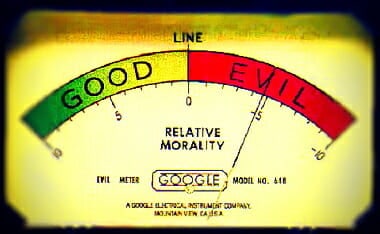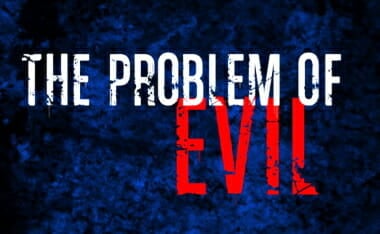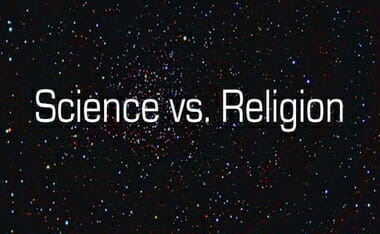Ethics


Ethics of the Left Versus Biblical Ethics (Peas and Roses)
“When a man ceases to believe in God he does not believe in nothing, he believes almost in anything.” ~ G. K. Chesterton
This is an old story, but I wanted to get it onto my site for reference. It comes from Daily Caller’s Wesley J. Smith, nd is the forefront of vegan/vegetarian “ethics.”
Just when you thought things could not get any weirder: Last Sunday, The New York Times — of course! — ran a piece in its Sunday opinion section by a university professor — of course! — claiming that it is unethical to eat certain plants. [The piece is entitled, “If Peas Can Talk, Should We Eat Them?“]
According to Michael Marder, recent discoveries show that peas communicate with each other through their root systems and soil. Of course, being plants, pea “communication” doesn’t involve the least level of sentience, not to mention rationality. It is a purely chemical response to environmental stimuli.
But should pea chemical communication elevate the moral value of peas? Yes, according to Marder (my emphasis):
When it comes to a plant, it turns out to be not only a what but also a who — an agent in its milieu, with its own intrinsic value or version of the good. Inquiring into justifications for consuming vegetal beings thus reconceived, we reach one of the final frontiers of dietary ethics.
Good grief. Plants aren’t “beings” and “who” equates to personhood. But plants don’t have any “version of the good — or for that matter, the bad: They are plants!
Marder then claims that plant sophistication means we should not eat them unless they live for several growing seasons:
The “renewable” aspects of perennial plants may be accepted by humans as a gift of vegetal being and integrated into their diets. But it would be harder to justify the cultivation of peas and other annual plants, the entire being of which humans devote to externally imposed ends.
I hate to repeat myself, but good grief! People are starving in the world and Marder worries about the ethics of eating peas and carrots! Worse, the piece runs with all due respect in the Sunday opinion section of the nation’s Paper of Record! (Yes, I’m yelling.)
In another article Wesley J. Smith in National Review mentions this new frontier of ethics in speaking about the 20123 elections, and Romney’s father’s “MURDEROUS” heart!
I just saw a funny Tweet from @jimnorton, in which he “condemns” Mitt Romney’s father for “murdering roses” when he placed one on his wife’s bedstand every night. (Romney scored emotionally in last night’s speech when he recalled that his mother found out his father had died because the rose was missing.) Thing is, Norton’s jibe is not quite as off the wall as some might think. Switzerland has, for instance, placed the “dignity” of individual plants in its constitution. The government then asked a big brained bioethics commission to explain why individual plants have dignity (they share molecular material with us), and the commission gave an example of a terrible immoral action. From my Weekly Standard column, “The Scream of the Asparagus:”
The committee offered this illustration: A farmer mows his field (apparently an acceptable action, perhaps because the hay is intended to feed the farmer’s herd–the report doesn’t say). But then, while walking home, he casually “decapitates” some wildflowers with his scythe. The panel decries this act as immoral, though its members can’t agree why. The report states, opaquely: At this point it remains unclear whether this action is condemned because it expresses a particular moral stance of the farmer toward other organisms or because something bad is being done to the flowers themselves.
So, according to this crowd, George Romney apparently did murder roses–worse, put out a contract for daily rosicide!
After referencing the other article about peas that he [Smith] wrote, he ends with this:
Then there is the growing “nature rights” movement. My point is that @jimnorton thought he was being funny–and he was. But some take such nonsense seriously. That’s what happens when you reject human exceptionalism. You go–pardon the animalism–nuts!

Hear Atheists Themselves on Evil and Absolutes [UPDATED!]
I wish to start out with an excerpt from a chapter in my book where I use two scholarly works that use Darwinian naturalism as a guide to their ethic:
- Dale Peterson and Richard Wrangham, Demonic Males: Apes and the Origins of Human Violence (New York, NY: Houghton Mifflin Harcourt Publishing, 1997).
- Randy Thornhill and Craig T. Palmer, A Natural History of Rape: Biological Bases of Sexual Coercion (Cambridge: MIT Press, 2000).
My incorporation of these works into my book (quote):
“Lest one think this line of thinking is insane, that is: sexual acts are something from our evolutionary past and advantageous; rape is said to not be a pathology but an evolutionary adaptation – a strategy for maximizing reproductive success….. The first concept that one must understand is that these authors do not view nature alone as imposing a moral “oughtness” into the situation of survival of the fittest. They view rape, for instance, in its historical evolutionary context as neither right nor wrong ethically. Rape, is neither moral nor immoral vis-à-vis evolutionary lines of thought, even if ingrained in us from our evolutionary paths of survival. Did you catch that? Even if a rape occurs today, it is neither moral nor immoral, it is merely currently taboo. The biological, amoral, justification of rape is made often times as a survival mechanism bringing up the net “survival status” of a species, usually fraught with examples of homosexual worms, lesbian seagulls, and the like.”
(pp. 7-9 of Roman-Epicurean-ism-Natural-Law-and-Homosexuality)
Now, hear from other atheist and evolutionary apologists themselves in regard to the matter:
Richard Dawkins
(h/t: TrueFreeThinker) – A Statement Made by an atheist at the Atheist and Agnostic Society:
Some atheists do believe in ethical absolutes, some don’t. My answer is a bit more complicated — I don’t believe that there are any axiological claims which are absolutely true, except within the context of one person’s opinion.
That is, beauty is in the eye of the beholder, and so are ethics. So, why is Adolf Hitler wrong? Because he murdered millions, and his only justification, even if it were valid, was based on things which he should have known were factually wrong. Why is it wrong to do that? Because I said so. Unless you actually disagree with me — unless you want to say that Adolf Hitler was right — I’m not sure I have more to say.
[side note] You may also be aware that Richard Dawkins stated,
…I asked an obvious question: “As we speak of this shifting zeitgeist, how are we to determine who’s right? If we do not acknowledge some sort of external [standard], what is to prevent us from saying that the Muslim [extremists] aren’t right?”
“Yes, absolutely fascinating.” His response was immediate. “What’s to prevent us from saying Hitler wasn’t right? I mean, that is a genuinely difficult question. But whatever [defines morality], it’s not the Bible. If it was, we’d be stoning people for breaking the Sabbath.”
I was stupefied. He had readily conceded that his own philosophical position did not offer a rational basis for moral judgments. His intellectual honesty was refreshing, if somewhat disturbing on this point….
Stated during an interview with Larry Taunton, “Richard Dawkins: The Atheist Evangelist,” by Faith Magazine, Issue Number 18, December 2007 (copyright; 2007-2008)
Lewis Wolpert
From the video description:
Atheists Trying to Have Their Cake and Eat It Too on Morality. This video shows that when an atheist denies objective morality they also affirm moral good and evil without the thought of any contradiction or inconsistency on their part.
Dan Barker
This is from the video Description for the Dan Barker video below:
The atheist’s animal-level view of “morality” is completely skewed by dint of its lack of objectivity. In fact, the atheist makes up his own personal version of “morals” as he goes along, and this video provides an eye-opening example of this bizarre phenomenon of the atheist’s crippled psyche:
During this debate, the atheist stated that he believed rape was morally acceptable, then he actually stated that he would rape a little girl and then kill himself — you have just got to hear his psychotic words with your own ears to believe it!
He then stammered and stumbled through a series of ridiculously lame excuses for his shameful lack of any type of moral compass.
To the utter amazement of his opponent and all present in the audience, the gruesomely amoral atheist even goes so far as to actually crack a sick little joke on the subject of SERIAL CHILD-RAPE!
:::shudders:::
Meanwhile, the Christian in the video gracefully and heroically realizes the clearly objective moral values that unquestionably come to humanity by God’s grace, and yet are far beyond the lower animal’s and the atheist’s tenuous mental grasp. Be sure to keep watching until the very end so that you can hear the Christian’s final word — it’s a real knuckle-duster!
Atheist dogma™ not only fails to provide a stable platform for objective human morality for its adherent — it precludes him even the possibility. It’s this very intellectual inability to apprehend any objective moral values that leads such believers in atheist dogma™ as Hitler, Stalin, Mao, and Dahmer to commit their horrific atheistic atrocities.
Any believer in atheist dogma™, given sufficient power, would take the exact same course of action that Hitler did, without a moment’s hesitation.
Note as well that evolutionary naturalism has very dogmatic implication, IF — that is — the honest atheist/evolutionist follow the matter to their logical conclusions, via the ineffable Dr. Provine:
William Provine
Atheist and staunch evolutionist Dr. William Provine (who is often quoted by Richard Dawkins) admits what life has in stored if Darwinism is true. The quote comes from his debate here with Dr. Phillip E. Johnson at Stanford University, April 30, 1994.
`To Judge, Or Not To Judge` ~ Weiner Opts for the Later
“Most of the problems with our culture can be summed up in one phrase: ‘Who are you to say?’” ~ Dennis Prager.
(This comes via a h/t to Libertarian Republican) I thought this exchange between Weiner and a fellow Jew (who was very wise in his summation), but Wiener’s relativism comes screaming through. Let’s deal with this self-refuting statement first, and then let CARM jump in on the ethics wagon. The question becomes, if looking at Fyodor Dostoyevsky’s famous maxim, “If there is no God, all things are permissible,”
✡ “If there IS a God, are all things still permissible?”
Even the right to walk the streets without consequences for one’s actions? This aside, let us unpack a bit the challenge with three mock conversations from, Relativism: Feet Planted Firmly in Mid-Air, and is taken from a larger paper incorporating a wide variety of sources on this:
First Person: “You shouldn’t force your morality on me.”
Second Person: “Why not?”
First Person: “Because I don’t believe in forcing morality.”
Second Person: “If you don’t believe in it, then by all means, don’t do it. Especially don’t force that moral view of yours on me.”
First Person: “You shouldn’t push your morality on me.”
Second Person: “I’m not entirely sure what you mean by that statement. Do you mean I have no right to an opinion?”
First Person: “You have a right to you’re opinion, but you have no right to force it on anyone.”
Second Person: “Is that your opinion?”
First Person: “Yes.”
Second Person: “Then why are you forcing it on me?”
First Person: “But your saying your view is right.”
Second Person: “Am I wrong?”
First Person: “Yes.”
Second Person: “Then your saying only your view is right, which is the very thing you objected to me saying.”
First Person: “You shouldn’t push your morality on me.”
Second Person: “Correct me if I’m misunderstanding you here, but it sounds to me like your telling me I’m wrong.”
First Person: “You are.”
Second Person: “Well, you seem to be saying my personal moral view shouldn’t apply to other people, but that sounds suspiciously like you are applying your moral view to me. Why are you forcing your morality on me?”
Self-Defeating
- “Most of the problems with our culture can be summed up in one phrase: ‘Who are you to say?’” ~ Dennis Prager. So lets unpack this phrase and see how it is self-refuting, or as Tom Morris[1] put it, self-deleting. When someone says, “Who are you to say?” answer with, “Who are you to say ‘Who are you to say’?” [2]
This person is challenging your right to correct another, yet she is correcting you. Your response to her amounts to “Who are you to correct my correction, if correcting in itself is wrong?” or “If I don’t have the right to challenge your view, then why do you have the right to challenge mine?” Her objection is self-refuting; you’re just pointing it out.
The “Who are you to say?” challenge fails on another account. Taken at face value, the question challenges one’s authority to judge another’s conduct. It says, in effect, “What authorizes you to make a rule for others? Are you in charge?” This challenge miscasts my position. I don’t expect others to obey me simply because I say so. I’m appealing to reason, not asserting my authority. It’s one thing to force beliefs; it’s quite another to state those beliefs and make an appeal for them.
The “Who are you to say?” complaint is a cheap shot. At best it’s self-defeating. It’s an attempt to challenge the legitimacy of your moral judgments, but the statement itself implies a moral judgment. At worst, it legitimizes anarchy.[3]
[1] Tom Morris, Philosophy for Dummies (IDG Books; 1999), p. 46
[2] Francis Beckwith & Gregory Koukl, Relativism: Feet Planted in Mid-Air (Baker Books; 1998), p. 144-146.
[3] Via SCRIBD
- This is part of a larger audio piece on Relativism (http://tinyurl.com/mys76rt)
Dennis Prager, quite a few years ago, points out quite well that what the Left wants is NOT to be judged, in contradistinction to a ethical norm in human behavior:
-
Personal responsibility means you could be judged guilty.
- We never want to be judged guilty.
- So we must stop people who make such judgments.
- We stop them by calling them judgmental.
He continues
We have substituted normal and sick for good and evil, and that, again, means no personal responsibility. How can you be held responsible if you did what you did because you are sick?…. There is no one standard to which all people are accountable any more. And that’s what Race-Gender-Class does. It subverts responsibility.
CARM rightly makes the point that — especially those who believe in the Bible (as Wiener seemingly professes in the above video)
…Without a standard of morality, there is no way to judge what is good or bad. Atheists, for example, might decry what is the behavior of God in the Old Testament when he orders the destruction of people groups. But, by what standard does any atheist have to judge what is morally correct? At best, an atheist would only have the ability to express an opinion since he cannot offer any objective standard of morality.
Religious people can appeal to a higher power from which they can ascertain what is good and bad…. God does and he has communicated his standard of righteousness. This communication is found in the Bible. Take the 10 Commandments in Exodus 20. We see a codification of moral standards. We are told not to lie, not to commit adultery, not to covet, etc. These are standards given to us by God and though there are other cultures that don’t believe in the biblical God, they might have similar moral codes. But, for the Christian the Bible is the supreme authority that judges what is moral.
We can only judge what is moral if we have a standard given to us by God, not some standard that is based on emotion, opinion, or the changing morals of society. Even though atheists, agnostics, Muslims, and non-Christians might not approve of standards found in the Scriptures, we Christians believe that the Bible is the revealed and inspired Word of God and that within its pages are the moral standards by which we are to model our behavior. Therefore, the right to we have to judge what is moral comes from God as is revealed in his Word….
So Wiener’s summation in this back-and-forth show most of all his lack of deep thought on the important issue of public morality… and the consequences of violating it. Becoming a laughing stock!
Even Gay Patriot couldn’t pass this example of narcissism up!
It shows one of life’s classic moral confrontations.
- The normal person (“normal” just meaning, “takes for granted that there are norms of personal behavior”) expresses a viewpoint like: There are norms; you are aware that you violated them when you repeatedly betrayed and humiliated your wife with your deviance, right? I’m not judging you, you can go home and have a good life, but you really don’t belong in the public eye. Have a nice life, but please stop bothering us here in the public square.
- While the malignant narcissist expresses a viewpoint like: How DARE you tell me that I don’t belong in the public eye, being adored (e.g., voted for – and given power)?! You small person, you coward, you ignoramus, you self-appointed judge, you [insert names of choice]!
Hat tip, Michelle Malkin.
And Moonbat makes the point that some are attacking Obama’s positions just like they did Bush’s, but the difference this time is the media is ignoring it. Hmmmm… “naw, this isn’t more proof of a media bias” — says lemming:

Dr. Mark McCartney, Talks Science, God and Evidence
This Serious Saturday is with thanks to Pastor Matt and comes from Saints & Sceptics:
Dr. Mark McCartney, co-editor Kelvin: Life, Labours and Legacy (Oxford University Press, 2008). Dr. McCartney lectures in the School of Computing and Mathematics at the University of Ulster. Along with his research in applied mathematics, he has an interest the history of physics, co-editing “Kelvin: Life, Labours and Legacy” (with Raymond Flood and Andrew Whitaker) and “Physicists of Ireland” (with Andrew Whitaker). His PhD is in theoretical physics. (All views expressed here are those of“Saints and Sceptics”).
Dr. McCartney explains the limits of science, responds to the claim that science and Christianity have always been in conflict, and sums up the evidence for God in three words: “There are laws.”
Dr. McCartney develops his thoughts on atheism, science and morality, explains the “Fine-Tuning” argument, and discusses multiverses.
More at Saints & Sceptics site… highly recommended.
(An Early SERIOUS Saturday) Secular Humanist Advertisement Critiqued~William Lane Craig
Headed to Wine Country for the weekend… will forgo Friday Fodder, Sunday Toons will be later than usual. Sorry… sometime tomorrow afternoon I should have hit four wineries already in Paso… Ohhhhh Pooor Me!
Society As the Whole (Excerpted from the book, Relativism: Feet Planted Firmly In Mid-Air)

If Society, the will of all or the will of the majority [society says], is the final measure of morality, then all its judgements are moral by definition. Such a concept is an oxymoron – a contradiction in terms. An attorney once called a radio talk show with a challenge. “When are you going to accept the fact that abortion is the law of the land?” she asked. “You may not like it, but it’s the law.” Her point was simple. The Supreme Court has spoken, so there is nothing left to discuss. Since there is no higher law, there are no further grounds for rebuttal. This lawyer’s tacit acceptance of conventionalism suffers because it confuses what is right with what is legal.
When reflecting on any law, it seems sensible to ask, “it’s legal, but is it moral? It’s law , but is the law good; is it just?” There appears to be a difference between what a person has the liberty to do under the law and what a person should do. Conventionalism renders this distinction meaningless. There is no “majority of one” to take the higher moral ground. As Pojman puts it, “Truth is with the crowd and error with the individual” (much like Rousseau). This is tyranny of the majority.
When any human court is the highest authority, then morality is reduced to mere power – either power of the government or power of the majority. If the courts and laws define what is moral, then neither laws nor governments can ever be immoral, even in principle.
Another absurd consequence follows from the society says line of thought. This view makes it impossible to reform the morals of a society. There are actually two problems here; the first is called the reformer’s dilemma. Moral reformers typically judge society from the inside. They challenge their culture’s standard of behavior and then campaign for change. But when morality is defined by the present society’s standard, then challenging the standard would be an act of immorality. Social reformers would be made moral outcasts precisely because they oppose the status quo.
Corrie ten Boom and other “righteous gentiles” risked their own lives to save Jews during the Holocaust. William Wilberforce sought the abolition of slavery in the late eighteenth century in the United Kingdom. Martin Luther King Jr. fought for civil rights in the United States in the 50’s and 60’s. in Germany during World War II, Martin Niemoller and Dietrich Bonhoeffer challenged Christians to oppose Hitler.
We count these people as moral heroes precisely because they had the courage to fight for freedom. According to Society Says thought, however, they are the worst kind of moral criminals because they challenged the moral consensus of their own society. This view faces another difficulty with moral improvement of society. If society’s laws and cultural values are the ultimate standards of behavior, then the notion of moral improvement on a legal or cultural level is nonsense. A social code can never be improved; it can only be changed.
Think of what it means to improve something. Improvement means an increase in excellence by raising to a better quality or condition. How do we know if we have increased the quality of something? Only by noting that some change has brought it closer to an external standard of improvement. A bowler improves when she raises her average closer to 300, the perfect game. A baseball pitcher increases his skill by decreasing the number of batters he allows on base. If he strikes out every batter, he’s attained perfection. In either case, an outside standard is used as the measure of improvement.
To improve a society’s moral code means that the society changes its laws and values to more closely approximate an external moral ideal. If no such standard exists, if cultural values are the highest possible law, then there is no way for those standards to be better than what they are at any given moment. They can only be different. A society can abolish apartheid in favor of equality. It can adopt policies of habeas corpus protecting citizens against unjustified imprisonment; it can guarantee freedom of speech and the press. But according to this view, no one could ever claim that these are moral improvements but only that society changed its tastes. There is no moral ideal to emulate. Moral change is possible, but not moral improvement. Improvement means getting better, and there’s nothing better – in this view – than any society’s current assessment of morality. And moral reformers actually turn out to be unethical.
- 2 of 2
- « Previous
- 1
- 2
